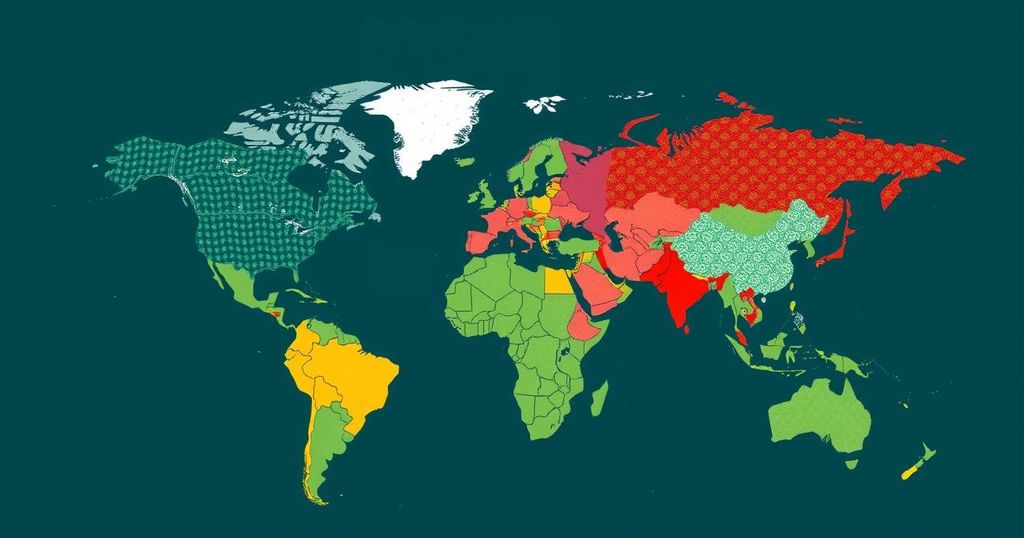Global Study Uncovers Lack of Understanding of Climate Justice Across Affected Communities

A global study has revealed that a majority of people, including those severely impacted by climate change, do not understand “climate justice.” The research surveyed over 5,600 adults in 11 countries and found that while there is widespread recognition of social and economic injustices related to climate change, two-thirds of participants had never heard of the term “climate justice.” Despite this, many supported equitable climate solutions and acknowledged disparities in climate impact and policymaking.
A recent comprehensive study conducted internationally has revealed a significant gap in the understanding of “climate justice” among the global population, including communities that are most adversely affected by climate change. Despite a general awareness of the social, historical, and economic injustices intertwined with the climate crisis, most individuals surveyed reported they were unfamiliar with the specific term. This research, led by scholars from the University of Nottingham’s School of Psychology, surveyed over 5,600 adults across 11 countries—including Australia, Brazil, Germany, India, Japan, the Netherlands, Nigeria, the Philippines, the United Arab Emirates, the United Kingdom, and the United States—marking the first time public comprehension of climate justice has been analyzed outside of Europe and North America. The findings have been documented in the journal Nature Climate Change. The study illustrates that while recognition of the injustices caused by climate change is prevalent globally, fundamental understanding of the term “climate justice” is lacking. Approximately two-thirds of respondents were unaware of the concept, yet a significant majority expressed support for its associated principles. Notably, 78 percent agreed that those in lower socio-economic conditions face greater impacts from climate change, and 70 percent acknowledged the roles of capitalism and colonialism as contributing factors to the crisis. The research indicates that a belief in climate justice is positively correlated with engagement in climate-related actions and backing for equitable climate policies. Dr. Charles Ogunbode, the leading researcher, emphasized the importance of incorporating climate justice into societal responses to climate change, promoting solutions that are both fair and equitable. He critiqued the predominant focus on perspectives from more affluent regions, noting that communities in climate-vulnerable countries are often regarded merely as subjects within the climate discourse, rather than as active participants in developing solutions. Dr. Ogunbode hopes that the findings will empower climate advocates to urge policymakers to adopt more equitable measures in response to the climate emergency. This research highlights the need for enhanced communication and understanding of climate justice, particularly as it pertains to developing inclusive policy frameworks that acknowledge the voices and challenges faced by marginalized communities in climate discourse.
Climate justice refers to the framework that addresses the uneven effects of climate change and its implications on various societal groups, emphasizing that those who are most affected often lack a voice in climate-related decision-making processes. This study is noteworthy as it extends the examination of public understanding of climate principles beyond typically studied Western contexts, reflecting a more global perspective on climate justice. The disparity between general awareness of climate injustice and specific knowledge of climate justice terminology indicates an area for improvement in climate education and advocacy. Understanding these concepts is vital for ensuring inclusive and actionable climate policies that consider socio-economic disparities.
In conclusion, the international study underscores a crucial gap in the public’s comprehension of climate justice, even among those most affected by climate change. While there is a broad acknowledgment of the injustices related to climate impacts, the lack of familiarity with the term “climate justice” could hinder effective advocacy and policy-making. The research suggests the necessity for targeted communication strategies that educate and engage communities globally, thereby fostering a more inclusive dialogue around climate solutions. Promoting understanding of climate justice may empower affected populations to participate actively in shaping climate responses, ensuring their interests are adequately represented.
Original Source: phys.org






